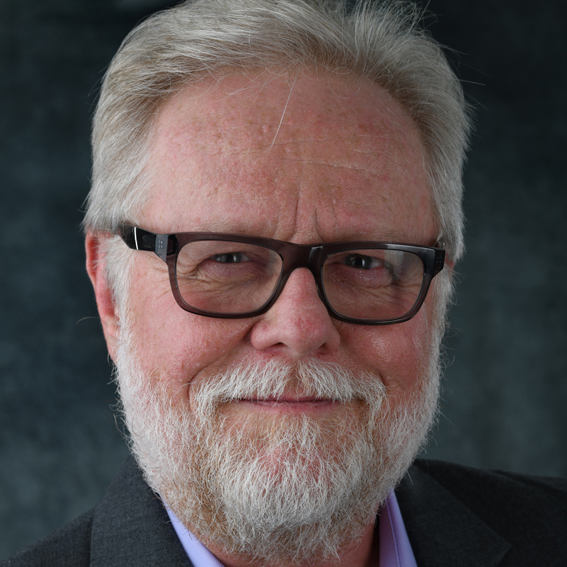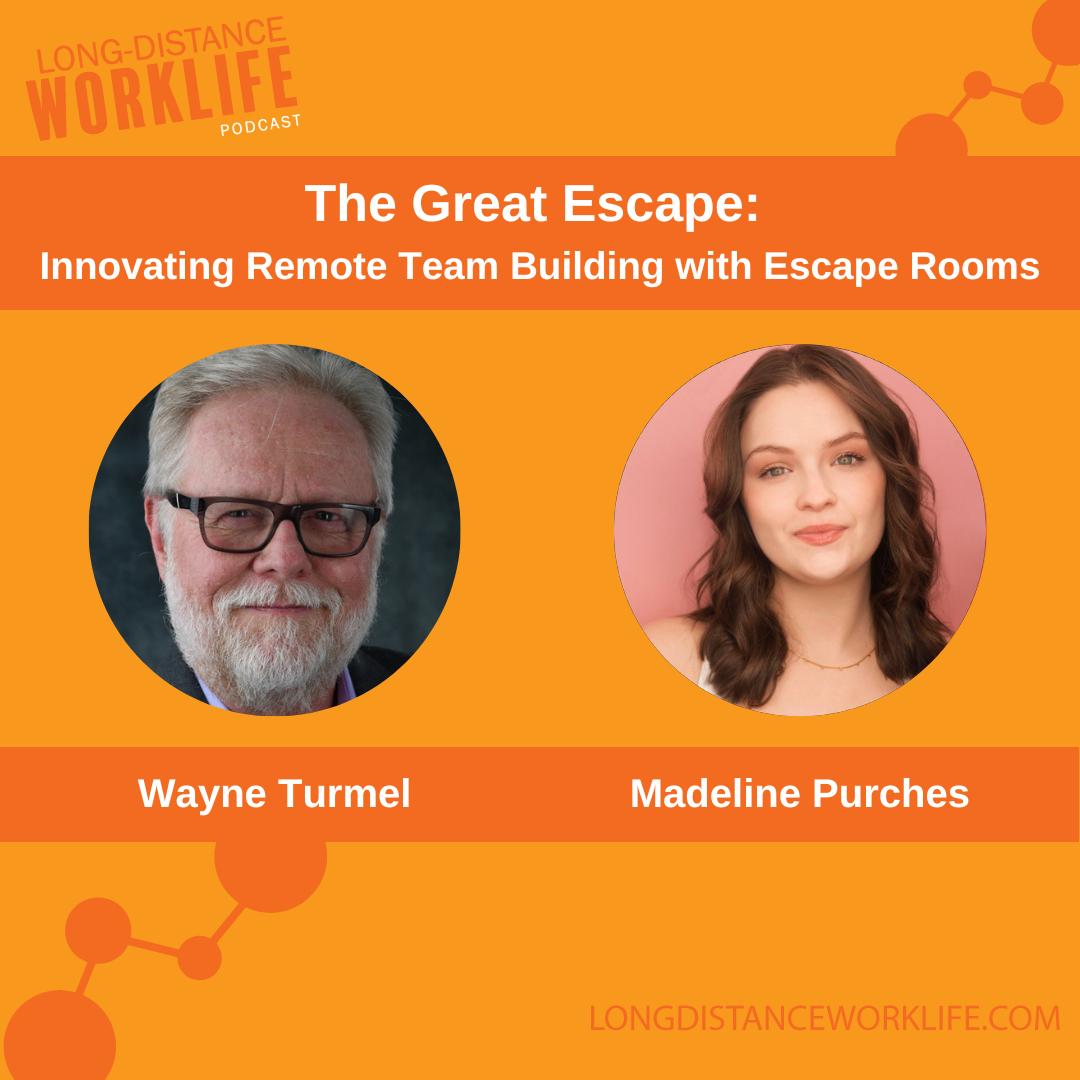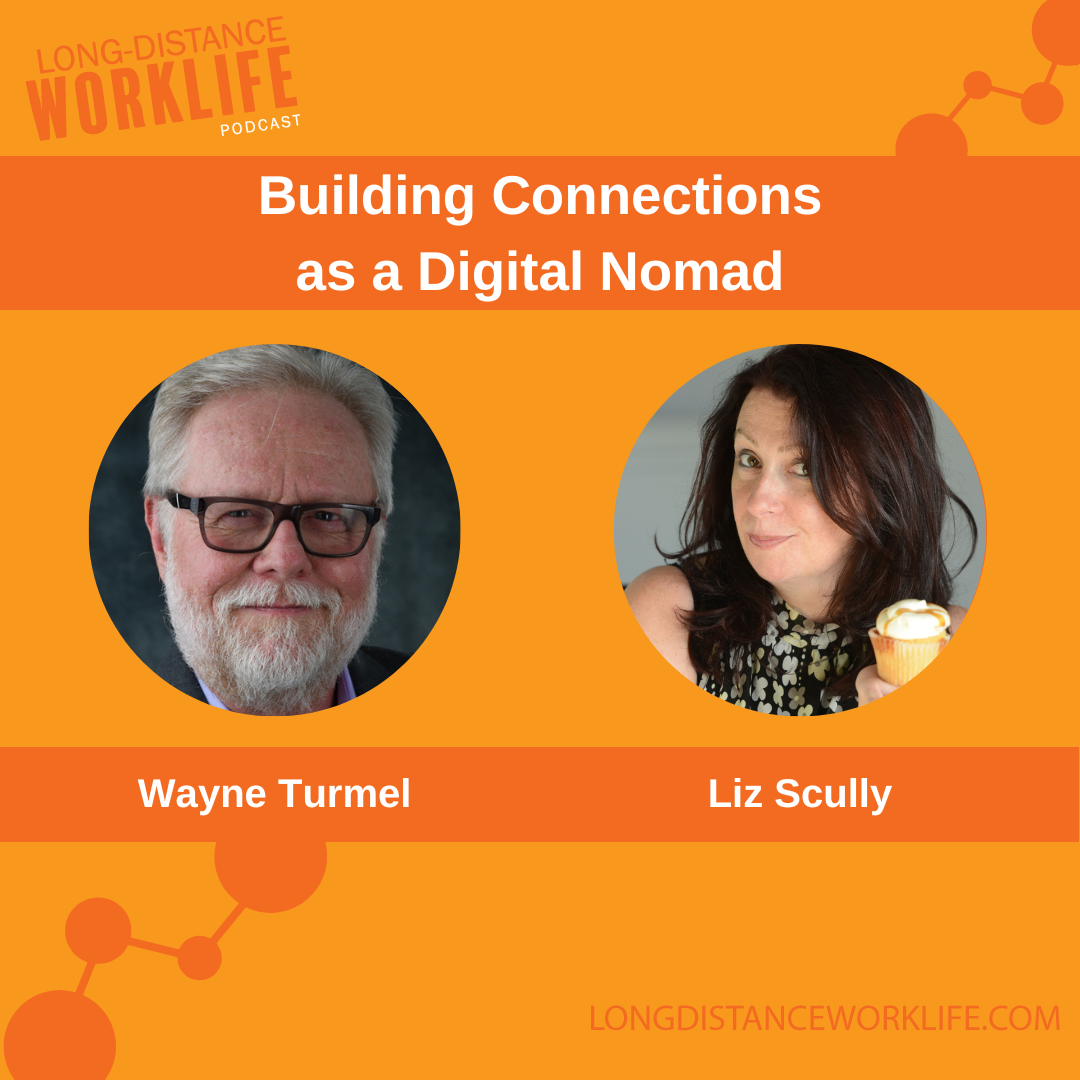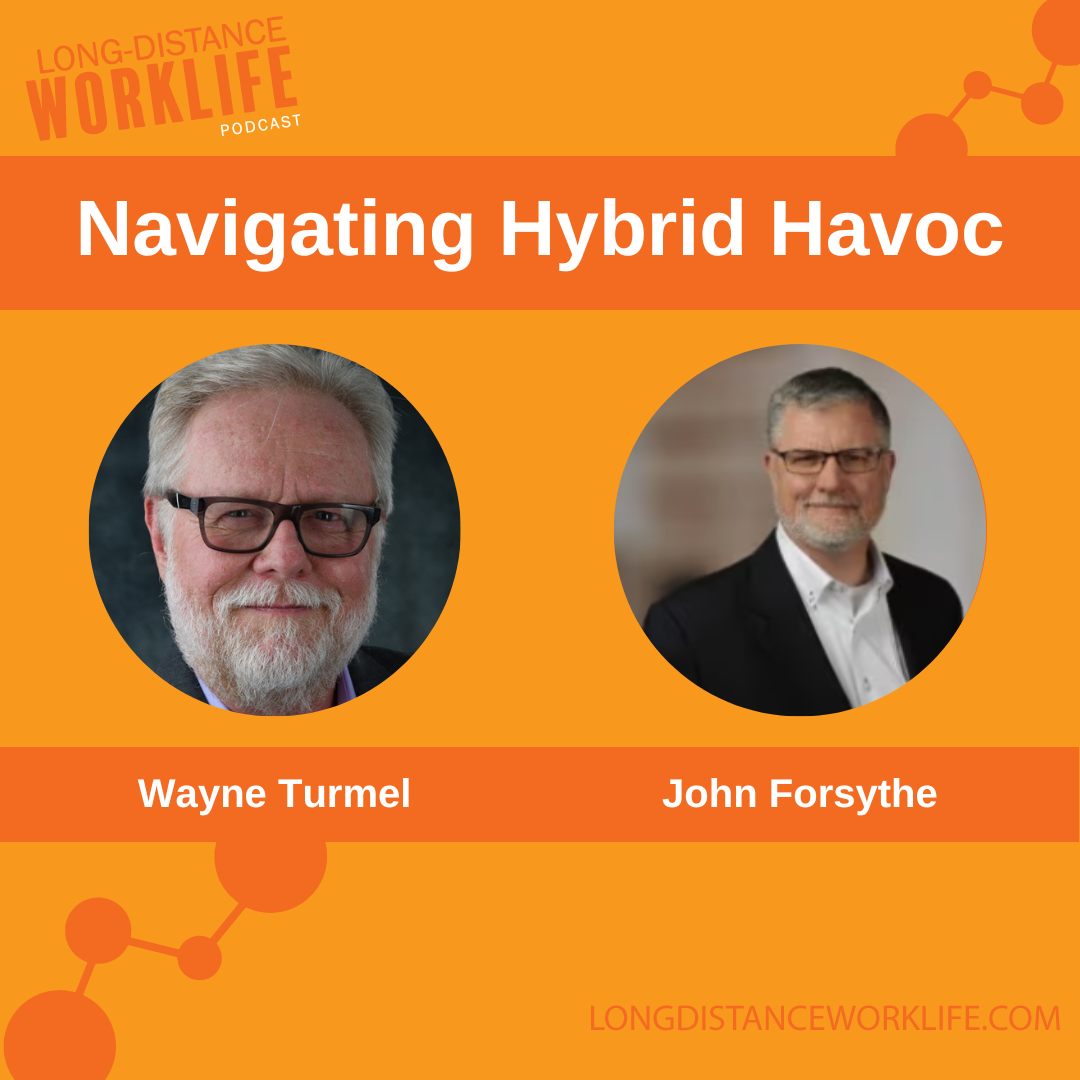Mark Herschberg discusses the essential skills needed to thrive in the modern workplace. He emphasizes the importance of creating a career plan and regularly checking in and refining it. Mark also highlights the need for effective communication, especially in the remote work environment where communication channels are more limited. He explains that writing skills and written communication have become increasingly important, as 70% of work is now done in writing. Additionally, Mark emphasizes the significance of networking, both internally and externally, for career success. He encourages reframing the perception of corporate politics and recognizing the value of building relationships within the organization.
Key Takeaways
1. Creating a career plan is essential for long-term success.
2. Effective communication is crucial, especially in the remote work environment.
3. Writing skills and written communication are increasingly important in the modern workplace.
4. Networking is valuable for career growth and navigating corporate politics.
00:00:00:21 - 00:00:34:02
Wayne Turmel
Greetings. Salutations. Hello. Bienvenue. The new all that good stuff to the Long-Distance Worklife podcast, the show that is really about making sense of the modern workplace, whether you are remote hybrid, stuck in an airport wherever you are, however you do your work. Welcome. Welcome. My name is Wayne Turmel. I am a master trainer and coach with the Kevin Eikenberry Group and I am really excited to have you with us today.
00:00:34:04 - 00:01:01:07
Wayne Turmel
Marisa is sitting patiently editing and producing this episode while I have a another terrific conversation with a really smart person. And today's topic is one that I am obsessed about, which is as somebody who doesn't have a formal degree and has done okay for himself, what are the skills that we need to live in thrive in this new workplace?
00:01:01:09 - 00:01:14:21
Wayne Turmel
And our guest today is author Mark Hirshberg. He is the author of The Career Toolkit Essential Skills for Success. No One Taught You. I love that. Hi, Mark. How are you.
00:01:14:23 - 00:01:17:12
Mark Herschberg
Doing? Great. Thanks for having me on the show today.
00:01:17:14 - 00:01:25:08
Wayne Turmel
Well, as always, thank you for being here. Tell us a little bit about you and what you do and then we'll jump right in here.
00:01:25:11 - 00:01:51:10
Mark Herschberg
I do do a couple different things. I am primarily a CTO, CPO, chief technology officer, chief product officer. I do that sometimes when I build my own startups. Sometimes I work for other companies. Right now I'm doing fractional work, so I'm consulting to a few different companies, giving them a few hours a week as they either need help or lately there's been a lot of questions about, I hope, and helping them with.
00:01:51:12 - 00:02:12:12
Mark Herschberg
Now I've also, in parallel, been teaching at MIT for over 20 years, developing these skills, teach them to our students because these are skills we don't normally teach. And we recognize that years ago I put them into the book The Career Toolkit, Essential Skills for Success that no one taught you. To help reach a wider audience. And I now do speaking on that as well.
00:02:12:14 - 00:02:34:18
Mark Herschberg
And then I also have an app brain bomb, because when we read a book like mine or listen to a podcast like this one, we get information, but we need it months later, days later at the place, and we often have forgotten it. So Brain Bump is a free app to help people retain what they get from my book, other books, podcasts and other sources.
00:02:34:23 - 00:02:36:13
Mark Herschberg
So I do a lot of different things.
00:02:36:15 - 00:02:55:17
Wayne Turmel
Great, great stuff. And we will have links to the book and to Brain Bomb and all of that good stuff on the show notes, as always. So you and I were talking before we started. And by the way, if you ever get a chance to listen to the conversation before Dave rolls, that's probably the coolest part of the show, if I'm honest.
00:02:55:22 - 00:03:25:20
Wayne Turmel
This is something that I'm obsessed with as somebody who didn't get the formal business education and kind of certain stuff on the fly. I'm obsessed with how people succeed and why really smart people often don't. What first of all, what are the tools that we need? And then let's talk about how it's different in this world of remote hybrid work from the way that we've traditionally thought about our careers.
00:03:25:21 - 00:03:47:22
Mark Herschberg
There are ten skills covered in the book, and you've seen these before. Now you might see a list that has five of them or 50 of them, and they're really the same list. It's just where you're drawing the lines, how big those buckets are. But the ten that we really boil it down to three sections versus careers creating and executing a career plan skills, I call them working effectively.
00:03:47:22 - 00:04:10:03
Mark Herschberg
These are things like managing your manager and understanding corporate culture and politics. The word skill, interviewing. Now most of us know how to interview as a candidate, but many of us have to interview on the other side of the table and we have no training how to do that. Second section leadership and management. Or there's a chapter on leadership, one on people management, one on process management.
00:04:10:03 - 00:04:17:18
Mark Herschberg
They're separate. And the third section four Skills communication, networking, negotiating relations and ethics.
00:04:17:21 - 00:04:48:13
Wayne Turmel
Okay, so there's that first section in that third section really kind of set me aflame here because we spend a lot of time talking about leadership and management. There's a million resources around that. All right. There's no shortage of stuff. Talk to me about that first bunch, particularly the notion of setting your career track and working a plan, because working remotely has kind of changed the rules.
00:04:48:15 - 00:04:59:10
Wayne Turmel
Some people kind of knew instinctively when you worked in the office, you bump into people at the coffee machine and you can suck up people in the cafeteria, but it's different when you're not there.
00:04:59:13 - 00:05:16:11
Mark Herschberg
It is indeed. Let's first start with you need a career plan, because even in office, most people tend to skip that. You would never tackle a big project at work, a six month, a year long project without having some type of plan. You wouldn't say your boss. Well, cross your fingers. I'll see what I get done in six months.
00:05:16:11 - 00:05:34:21
Mark Herschberg
So I hope I hit the goal. That's crazy. You'd say, Let's create a plan unless you check things on the plan. Or are we on plan? Off plan? Do we adjust the plan? If you wouldn't do a six months or a 12 month project at work without a plan. Why are you doing a 20, 30 year career without having a plan?
00:05:34:23 - 00:05:43:14
Wayne Turmel
Now, just as we're talking about a plan, let's be really tactical and practical here. What are the milestones in that plan?
00:05:43:17 - 00:06:07:08
Mark Herschberg
Great question. What I recommend people do is you create first you've got your your vision, your long term. I want to be the VP of whatever in 20 years, whatever your goal is. Now, you know that if you want to be the VP in 20 years, you need to be somewhere probably about 15 years out. Just like if you're delivering a project in 12 months, where do you need to be ten months out?
00:06:07:08 - 00:06:24:03
Mark Herschberg
So you're on time so we can start to backtrack. Where do you need to be in about 15 years? What to be there in 15 years? Where do you need to be in ten years and in five years so we can start backing out now? The timeframe somewhat arbitrary. It doesn't have to be 15, ten, five and the ranges.
00:06:24:05 - 00:06:40:18
Mark Herschberg
But just like in your project plan, you might have these placeholders and you know what you're planning for month ten, that's kind of fuzzy and that might change. But what you're doing the next 30 days should be very clear. And so what you're doing in the next year or two is you backed out this plan, what you do in the next year or two.
00:06:40:18 - 00:07:01:04
Mark Herschberg
What I need to start by being a better communicator or learning some more technical skills in my discipline or whatever it is that should be concrete. And that's what you're working on. And just like these project plans, you want to have check ins and adjustments. So here's something simple you can do right now. I'm going to ask you to pause the podcast, but you have to promise to come back.
00:07:01:06 - 00:07:24:15
Mark Herschberg
Pause the podcast. Go to your calendar. Put in a calendar event that says, Think about my career and set that as a recurring event every six months. And now that you're back, what you just did by creating that recurring calendar event, you've created a cadence to check in and refine your plan. Just like on our projects, we have a weekly or monthly check in.
00:07:24:20 - 00:07:26:10
Mark Herschberg
You've now done that for your career.
00:07:26:13 - 00:07:29:19
Wayne Turmel
And assuming that folks are still listening at this point.
00:07:30:01 - 00:07:32:00
Mark Herschberg
That's why I made the promise to come back.
00:07:32:05 - 00:07:56:19
Wayne Turmel
And when we talk about developing skills, I just want to go to 30,000 feet for a minute. When we're talking about developing skills, we're not necessarily saying go back and get a master's degree, although that might be part of the occasion. There are a million ways to grow and develop some of both micro and macro skills that you're going to need.
00:07:56:21 - 00:08:17:23
Mark Herschberg
You're absolutely right. Certainly you can get a formal education. You can get informal education by taking online classes, reading books, listening to a great podcast like this one, exploring education is very important for some people. In fact, things like communicating leadership, it's like swimming. You can't just read a book on swimming and say, I know what I'm doing.
00:08:17:23 - 00:08:41:19
Mark Herschberg
You have to actually practice and do it. And so you can practice things by getting on certain projects. You can maybe do it with some volunteer work or things outside your professional work. You can also I have on my website on the resources page, a free download to create a free internal training program to upskill yourself or your entire organization on these skills because they are experiences.
00:08:41:19 - 00:08:44:05
Mark Herschberg
So there's many different ways you can acquire them.
00:08:44:09 - 00:09:19:14
Wayne Turmel
So time being what it is, let's kind of jump forward. Communication. I mean, communication skills are my personal passion. I think that they're all so important and too many really smart, good people don't possess them in the amount and style that they need. But it's also like this big thing. It's like a checkbox on an interview, right? Good communication skills to your mind, what's included in that and maybe how has the way we work in the last few years changed our approach to this stuff?
00:09:19:17 - 00:09:47:20
Mark Herschberg
You hit the nail on the head when you said this checkbox on these job descriptions, and I used to be guilty of that myself. Earlier was it mean to say good communication skills? Does that mean we want someone who can stand on the TED talk stage and do this global presentation? They'll get a million views. Does that mean someone who writes concise emails, Does that mean someone who can explain or discipline to people without the technical background in that field?
00:09:47:22 - 00:10:09:17
Mark Herschberg
These are all different types of communications. They're all important, but they may not all be equally important to the role. So whenever we define a role, we need to say what type of communication do we need? Because it could be any of those. And we probably in our careers want to develop some of all of them. But for a particular job, some will be more important.
00:10:09:17 - 00:10:33:22
Mark Herschberg
And so you as a hiring person should understand that you as a candidate should understand that and speak to that now as we get to remote teams, where I think this becomes particularly challenging is our communication channels narrow when we are together, we're in the same environment. Obviously we have facial expressions, body language, tone, even just the environment.
00:10:33:22 - 00:10:53:18
Mark Herschberg
We've all been meetings where everyone feels temps or everyone feels relaxed and you can just feel that vibe once you start going to video. We don't have that vibe that we can see some body language once we go to audio, we lose the body language. Once we go to email, we lose the tones, we get more and more narrow in our communication channels.
00:10:53:18 - 00:11:03:20
Mark Herschberg
And as we're remote, we're using more of those narrower channels. So it's important that we learn how to communicate despite the more narrow bandwidth we are communicating through.
00:11:03:22 - 00:11:29:04
Wayne Turmel
And I'm loving that. Talk to me a little bit. It's something that I obsess about, and I'm always shocked that more people don't find this worthy of obsession, which is what you're talking about. It's the narrow form of communication. For the first time in human history, 70% of our work is being done in writing, which is a huge deal if you stop to think about it.
00:11:29:08 - 00:11:36:19
Wayne Turmel
What are how do we need to rethink writing skills and written communication action as we look forward?
00:11:37:00 - 00:11:49:02
Mark Herschberg
One of the challenges is we kind of have this one size fits all. If you think about an email, we have this email. The email came out of a memo, What we used to do in the fifties.
00:11:49:04 - 00:11:53:19
Wayne Turmel
Or I was there when the email came about, I was there.
00:11:53:21 - 00:12:11:18
Mark Herschberg
There's almost different types of communications. In fact, we're of a we're not we're not the youngest generation anymore. And you see with younger people, why would you call us if you and I are trying to coordinate meeting up for drinks? They say, Well, why would you ever get on the phone and say, Hi, how are you doing? Are you free for drinks more?
00:12:11:18 - 00:12:32:22
Mark Herschberg
Are you free? Just text to be like drinks time date you counter with a different time date. That's much more efficient. That's how they look at it, said the whole voice. You don't need my tone. You don't need to go through formality. Hi, how are you doing to coordinate getting together for drinks so you recognize that certain types of communication say scheduling, very narrow and limited.
00:12:33:00 - 00:12:58:04
Mark Herschberg
There's other times where I say, Listen, I think there's an issue with our strategy and I'm going to lay out and all my thoughts and analysis, and that's a broader type of communication. But we use email for both of those. They go into our inbox sitting next to each other. They're in the same general format. And so we need to recognize that it might be time to split up how we do things, how we communicate.
00:12:58:04 - 00:13:22:08
Mark Herschberg
Now, the scheduling got a little easier because now the calendars, I can just propose a time on the calendar and you get this well formatted thing that can be processed. But one of the challenges, by the way, is that we now have so many communication channels. Should I be calling you, emailing you, texting you, slacking you, there's all these different channels and we might have different channel preferences because companies often don't define this.
00:13:22:10 - 00:13:27:00
Mark Herschberg
So we just have to recognize that it's it's a lot more complicated than just writing.
00:13:27:05 - 00:14:02:03
Wayne Turmel
Yeah. And in the long distance leader and all the associated books, we talk about the idea of richness versus scope, which is how do we make that determination? Right? It's not just what tools we use, but why do we use which tool when in the time in the time that we have remaining. I want to talk about something that is going to cause ions to roll into the back of skulls as we talk, and that is internal networking in our company because we think of networking as, Oh, I'm looking for a job.
00:14:02:03 - 00:14:10:19
Wayne Turmel
I better network and find something. But it's critical to our careers, even internally for those of us who are gainfully employed, right?
00:14:10:23 - 00:14:35:20
Mark Herschberg
It is indeed. Unfortunately, most people think of networking as this is how I find a job, and that's the only time they think about building. Their networks are using their networks. But networks can do so much more. It can help us for our external networks outside our companies. It can help us find candidates, customers, partners. It can help us be aware of changes our industry, how to think about things.
00:14:35:22 - 00:14:58:20
Mark Herschberg
But then, as you pointed out, internal networks are so important as well because internal networks, they can do some of the same things. Certainly if you're at a big company, you might hear about job opportunities. Oh, there's a new department opening. They have a role, something you're looking forward to doing, being aware of what's happening in the company, strategic changes, understanding which way the corporate winds are blowing.
00:14:58:22 - 00:15:15:06
Mark Herschberg
Very important are networks help with all this? They help us with corporate politics. And you might not like corporate politics. Many people don't, but it's happening. It's kind of like government politics. You can say, I don't like it. You can choose not to vote. But guess what? Your life is affected by it. Your life is effectively corporate politics.
00:15:15:07 - 00:15:35:09
Mark Herschberg
Are your internal networks developing relationships with other people in the company can help you navigate the company and be more effective in your role. But now that we're not having those run ins at the WaterCooler, as you pointed out earlier, it's challenging. We have to be more proactive in building and maintaining these relationships.
00:15:35:11 - 00:16:02:04
Wayne Turmel
I think that's a huge thing for a lot of people and it's it to some degrees, it's cultural. And I'm not talking about national cultures, although some of that do, I think. But, you know, if your mother ever told you the nail that sticks its head up, gets whacked with a hammer, and if you keep your head down and do your work, the work will speak for itself, which is maybe the most terrible lie we tell people when they're when they're working.
00:16:02:08 - 00:16:20:14
Wayne Turmel
When you talk to people about this and you get the inevitable, either push back or just horrify and looks, how do you help people take the step to start being a little more interested in the politics and being a little more proactive? Because that's a huge thing.
00:16:20:17 - 00:16:41:21
Mark Herschberg
We need to reframe how we see it. And I'll use analogy with governance. We often have, no matter what country you're in, you probably have a distaste for the politics of your nation. We all hate it, but really we know we need it. We need governance. So we need to be able to elect because we don't want kings.
00:16:41:23 - 00:17:02:17
Mark Herschberg
And we also know that when done right, when we think about some of our greatest leaders, well, they really did a good job. They have changed us for the better so it can be done well. We just often focus on here's all the bad examples. And within corporate politics, if you just see it as, oh, this is bad, this is how people cheat and get ahead.
00:17:02:17 - 00:17:23:16
Mark Herschberg
And yeah, I'm not good at what I do, but I'm your buddy. So you're going to promote me? Yeah, that's a bad example. But there are also good examples where we are just using a different approach, more of a relationship oriented approach. And as long as you're not taking it to the extreme, it can actually be useful and helpful to the organization.
00:17:23:20 - 00:17:33:11
Wayne Turmel
Okay, so we are at the end of our time. I know that you have ten skills. Which one have we talked about that's most important? You got 30 seconds ago.
00:17:33:15 - 00:18:02:16
Mark Herschberg
It's not only one skill. Here's the key. By getting just a little bit better at any of these skills, you are getting incremental returns. If you get better at negotiating. For example, imagine every job you get, you're getting more money. How does it compound over time? Now that's with negotiations. It's easy to do the math, but this applies to leadership, to our networks, to any of these skills getting just a little bit better compounds over time and really helps us succeed in our careers.
00:18:02:18 - 00:18:38:03
Wayne Turmel
Dig in. And Mark Hirshberg, the book is The Career Toolkit Essential Skills for Success No One Got you. Thank you so much for being with us. I really, really enjoyed this conversation and we could geek out for a long time. Yet for the rest of you, if you are interested in learning about Mark's book, about his app Brain Bump, connecting with Mark himself, the show notes, as always, Marisa will have organized them in terrific fashion at long distance work life dot com.
00:18:38:05 - 00:19:02:04
Wayne Turmel
If you are interested in redesigning your team and thinking about your team and doing some of that development that we're talking about. Kevin Eikenberry In my new book, The Long Distance Team, Designing your Team for everyone's success is out there. You can get special deals and downloadable resources at long distance team. BBC.com You are listening to a podcast.
00:19:02:04 - 00:19:26:17
Wayne Turmel
I doubt it's your first one, so you know the drill. Please like and subscribe and tell people about it. Leave a review on your aggregator. That is always immensely helpful. And then finally, if you enjoy the show, if you don't enjoy the show, if you have ideas for way better shows, we want to hear it. Marisa is currently collecting pet peeves.
00:19:26:17 - 00:19:56:21
Wayne Turmel
You are not being shy about submitting those and that helps us plan future episodes so you can reach out to Marisa Ikenberry or myself on LinkedIn or at the email below. Links on the show notes. Thank you so much for being with us. We really hope that we're bringing you information that helps you ground yourself and survive and maintain your sanity in the changing world of work.
00:19:57:02 - 00:20:02:15
Wayne Turmel
As always, we will be back with another episode next week. Don't let the weasels get you down.
Featured Guest
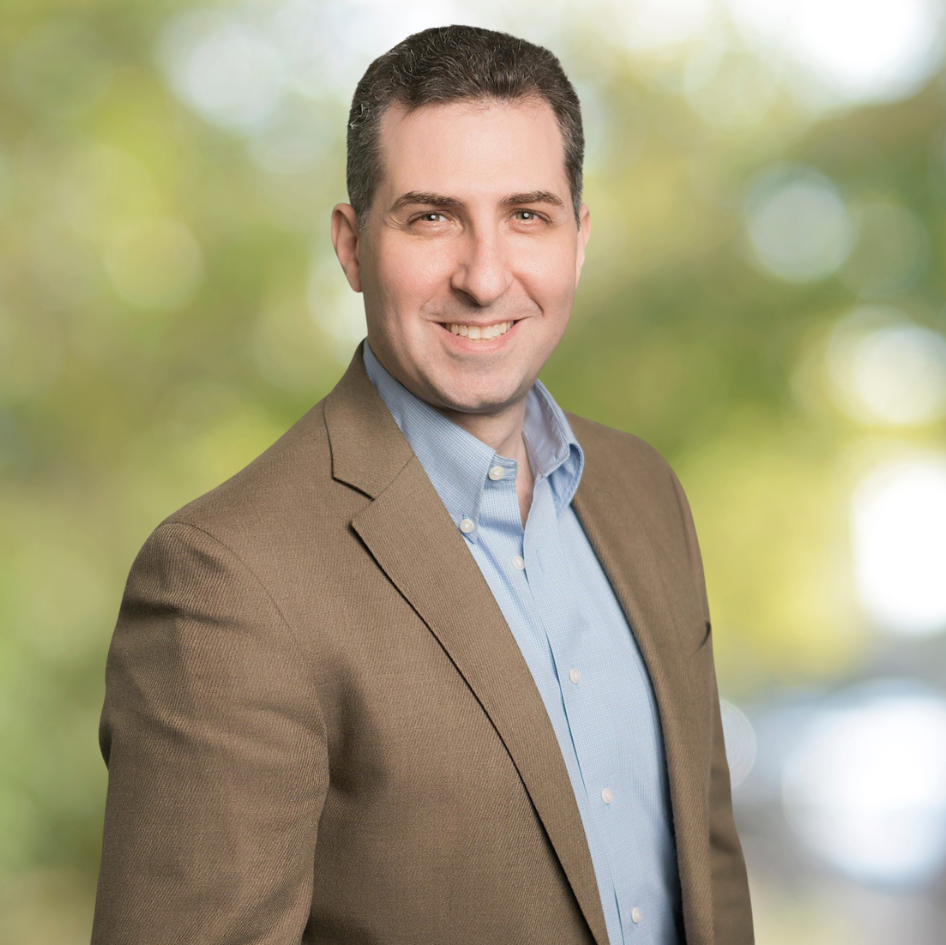
Name: Mark Herschberg
About Mark: Mark Herschberg is the author of "The Career Toolkit: Essential Skills for Success That No One Taught You." He is a CTO and CPO, and has been teaching at MIT for over 20 years. Mark is also the creator of the app Brain Bump, which helps people retain information from books, podcasts, and other sources.
Timestamps
00:00 Welcome: Intro to Mark Herschberg
01:09 Skill Set 101
04:48 Career Mapping in Remote Work
07:01 Career Plan Check-Ins
07:56 Skill Development Beyond School
09:19 Why Communication Matters
09:47 What is Good Communication?
10:09 Remote Work & Communication Shift
09:47 Diverse Communication Types
10:33 Remote Team Communication Hurdles
11:37 Rethinking Writing Skills
12:33 Navigating Communication Channels
14:02 Value of Internal Networking
16:20 Navigating Corporate Politics
17:33 Steps to Skill Improvement
18:38 Recommended Team Resources
20:02 Conclusion
Related Episodes
Additional Resources
- The Career Toolkit Book
- The Career Toolkit Book Resources
- Brain Bump App
- Learn more about Brain Bump
- Learn more about Wayne Turmel
- Email Wayne Turmel
- Connect with Wayne Turmel on LinkedIn
- Purchase a copy of The Long-Distance Leader
- Purchase a copy of The Long-Distance Teammate
- Purchase a copy of The Long-Distance Team
- The Kevin Eikenberry Group
Order The Long-Distance Team
Remote leadership experts, Kevin Eikenberry and Wayne Turmel, help leaders navigate the new world of remote and hybrid teams to design the culture they desire for their teams and organizations in their new book!

